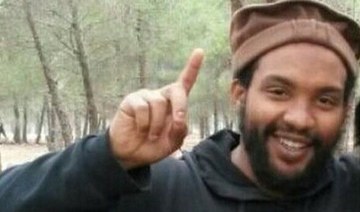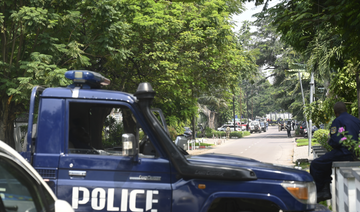London: Charities in the UK have branded the country’s system for reuniting separated families of asylum-seekers “broken,” calling for the Home Office to “fix and expand” it.
A new report published by the Refugee Council and Safe Passage International has highlighted figures showing a backlog of more than 11,000 migrants in the UK waiting to be reunited with relatives during the summer last year.
Despite repeated freedom of information requests, the Home Office has not provided updated figures since then.
The report mentioned that a particular problem faces separated Afghan families, with many individuals reaching the UK but finding themselves in prolonged legal difficulty and their relatives forced to remain in Afghanistan, neighboring Pakistan or elsewhere.
Currently, Afghans evacuated from their country as part of Operation Pitting in August 2021 are prevented from automatically bringing close family to the UK.
In October 2023, the British government proposed a new system to address this issue, but the plan has yet to implemented despite pressure from MPs and members of the House of Lords.
Approved asylum-seekers can apply for a family reunification visa, but thousands find themselves stuck in a backlog of cases despite the Home Office saying the process should take under 12 weeks.
The Independent spoke to a number of Afghans, including a former pilot, struggling to be reunited with their relatives.
The pilot told the newspaper: “They (his family) have been waiting for a visa for five months in Iran, but so far there is no news from the embassy and there is no guarantee it will be issued.
“My family are facing a lot of problems. They don’t have a proper place to live, and don’t have access to a doctor, because they are living illegally.
“Their Iranian visas have expired and they need to extend them, but it is impossible. My wife is suffering mentally and emotionally, and she is completely (without hope).”
Another issue is that of unaccompanied children who, under current rules, also cannot use their status to automatically relocate their families to the UK.
The Independent spoke to one Afghan teenager, Farhad, rescued from Kabul without his parents in 2021, who faces an anxious wait to see if his family can join him in the UK.
“(The UK government) promised in 2021 that they’re going to bring the families, but it’s still been almost three years,” he said.
“My mum and my siblings are in Pakistan because they needed a doctor and medication. But my father couldn’t get the visa to go with them.
“I am doing my GCSEs this month and I can’t really focus on my studies knowing that my family is struggling.”
Safe Passage International highlighted the case of another young boy, Ahmad, who had tried to join his older brother in the UK.
Despite both his parents having died in Afghanistan, the Home Office denied that he had any “serious and compelling” circumstances to justify his asylum application.
He was only able to stay in the UK after a judge intervened, ordering the Home Office to provide assistance.
Safe Passage International’s CEO Dr. Wanda Wyporska told The Independent: “Nearly three years on, it’s a national shame that Afghans, who risked so much to support UK military operations, are still waiting for a way to bring their family to safety here with them. Their family members are living in fear every day of the Taliban.”
The Refugee Council’s CEO Enver Solomon said: “The UK has clearly failed the Afghan refugees that it promised to protect, by keeping families separated for so long with no information on how they may be reunited.
“After risking everything for the UK, Afghans and their families should not be forced to make dangerous boat journeys to get here, nor should they face hostile, inhumane policies like the Rwanda plan when they do make it to the UK.”
A Home Office spokesperson told The Independent: “We made one of the largest commitments of any country to support people from Afghanistan, and so far we have brought around 27,900 individuals to safety in the UK, including thousands under our Afghan resettlement schemes.
“In October we committed to establish a route for those evacuated from Afghanistan under Pathway 1 of the Afghan Citizens Resettlement Scheme without their immediate family members, to reunite them in the UK.
“We remain on track to meet that commitment and open the route for referrals in the first half of this year.”


























